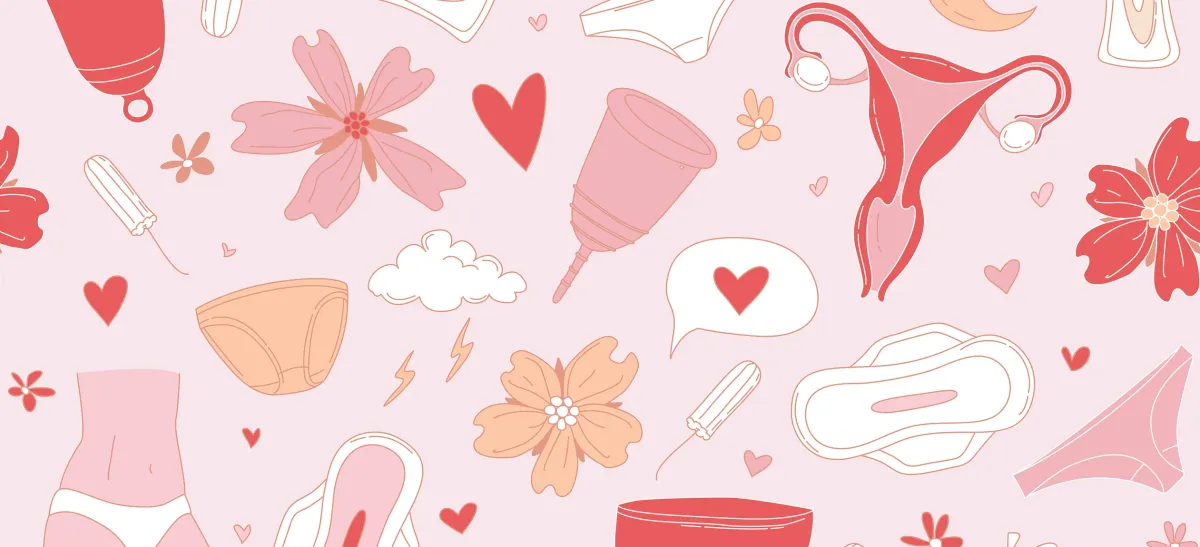My Period Ruined My Life and Worsened My Disability, But I Took Charge
I learned the pill is so much more than a contraceptive for disabled people like me.

Access the Audio Read version of this article directly on Spotify for Podcasters.
"After going through hell when I was a teenager, I hope other young disabled people no longer have to lie about their sexual activity to gain access to the pill today."
I got my first period when I was ten and still in primary school - before all my friends. I felt too young to feel my body changing so rapidly.
I have Spastic Triplegic Cerebral Palsy, a neurological disorder caused by brain damage. In my case, the brain damage was caused by a lack of oxygen during labour and after birth, although it can also occur in other ways. It affects both my legs and my left arm, and this means I can only walk short distances with crutches inside and use a power chair.
Periods were definitely new at such a young age, and I was unprepared. I also had not considered how drained I would feel when I would menstruate.
The truth is that I thought it would not happen for another few years, as that is what we were taught in school PSHE, but I had always been excited by the idea of it. My auntie had predicted I would start menstruating young, as my cousin’s period started when she was nine, so when I told my single dad my big news, he revealed a bathroom cupboard stocked with period products.
Looking back, it now seems strange that this was such a milestone for me, something I was looking forward to for so long when it ended up ruining my ability to plan things for years. My periods got heavy, irregular, and intense, lasting for a week at a time, and gradually leading to the deterioration of my mobility and independence. The experience was counterproductive too, as I found this change hard to adjust to, and felt like I was regressing rather than maturing. My whole life, I had been used to how disability affected me, but everything suddenly became uncertain.
Before my first period, I could walk with my crutches for longer distances, but at ten years-old, I found myself increasingly reliant on my wheelchair. My dad had to follow me around the house like a shadow when I was menstruating, to ensure I did not fall.
I also started getting angry at friends who were excited to start their period. I couldn’t use period products without assistance, so it felt like the limited privacy I once had as a disabled person had significantly decreased. It was all going downfall.
In early secondary school, my attendance was notably low due to my periods and the extreme fatigue they caused. The school got increasingly aware of my situation. My form tutor became concerned about the damaging impact it was starting to have on my education, and my physiotherapist noticed that I moved more slowly when I was on my period. I got prescription medication at twelve to reduce the flow, but it made me sick. From then on, doctors would not give me any alternatives, claiming I was too young, and that this medication was the only suitable option.
Every single time I was on my period, I felt like a shell of myself in every way, and robbed of the adolescence I had imagined - I was too exhausted. As my GCSESs approached, I was worried about how my periods would impact my exam performance. So at fifteen, I begged my doctor to put me on the pill.
Years of my pain were ignored; I was repeatedly told I had managed so far. The way that doctor used the word ‘manage’ was insulting: I had been struggling with the effects of my periods for years and was far from managing. In the end, I had to lie and say I was becoming sexually active to be taken seriously. This did the trick, as preventing teen pregnancy was way more important to my doctor than protecting my declining physical and mental health.
I finally was prescribed the progestogen pill, and it changed my life. I finally felt in control again. My period no longer dictated my energy levels or my social calendar, I could start saying yes again, and go swimming regularly. I no longer had to worry about being physically drained during exam season, and I honestly believe that I achieved higher grades because of my improved energy levels on the pill.
Of course, the pill does not work for everyone; some people experience side effects, but there is still too much stigma around needing it due to unbearable pain and fatigue.
Through it all, I learned the pill is so much more than a contraceptive for disabled people like me. If you think it may help you, speak to a medical professional about your options, and do not compromise on your health. Only you truly know your own body and what your period does to you. After going through hell when I was a teenager, I hope other young disabled people no longer have to lie about their sexual activity to gain access to the pill today. Because it is our right to live without pain.





